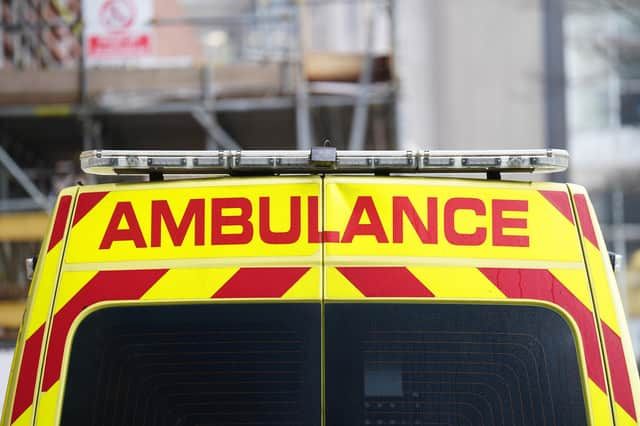Barts Health Trust among those to avoid New Year's Day ambulance increase this year


Barts Health Trust was one of the few trusts to avoid a New Year's Day increase in ambulance arrivals this year, with figures showing other trusts faced a significant rise in traffic on the first day of 2022.
As ambulance delays and waiting lists have hit record levels in recent weeks, the NHS says demand for care means the public should use "use emergency services wisely" over the new year period.
Advertisement
Hide AdAdvertisement
Hide AdData from NHS England shows that January 1 was quieter for ambulance arrivals at Barts Health NHS Trust this year – 201 patients arrived via ambulance, 5% fewer than the average for the prior fortnight.
But before the pandemic – on January 1 2020, just before coronavirus struck the UK – there was an increase, with 13.1% more ambulances arriving than the average for the two weeks before.
Across England, 12,500 people arrived at hospitals in ambulances this January 1, up 4.6% – before the pandemic, there was an 11.2% New Year's Day uplift.
Those needing emergency transport to hospitals this year will have additional complications to contend with, with ambulance delays hitting their highest levels on record across England.
Advertisement
Hide AdAdvertisement
Hide AdAfter calling off a strike due to take place on December 28 so people could "enjoy Christmas without any additional anxiety", ambulance workers are due to strike across England on January 11 and 23.
The strikes will take place around similar action from nurses, who will strike on January 18 and 19, having already walked out for two days in December.
Figures show that across England between December 19 and 25, the most recent seven days for which figures were published, 19.9% of 70,000 arrivals were held in ambulances for an hour or longer. A further 17.5% were held for between 30 minutes and an hour.
During the same period last year, 3.4% were held for over an hour, and 9.7% for between 30 and 60 minutes.
Advertisement
Hide AdAdvertisement
Hide AdThe picture was the same at Barts Health Trust – where 11.6% of arrivals faced an hour's delay this year, up from 3.4% on the same dates a year ago. A further 22.3% faced a wait of half an hour or longer this year – last year, 6.1% did on those dates.
An NHS spokesman said: “The NHS has seen record demand for emergency care in recent months which is likely to continue through the new year period, so it’s important that the public use emergency services wisely.
“This means continuing to call 999 for life-threatening emergencies and using 111 online for other health needs where you will receive advice on the best next steps to take.”